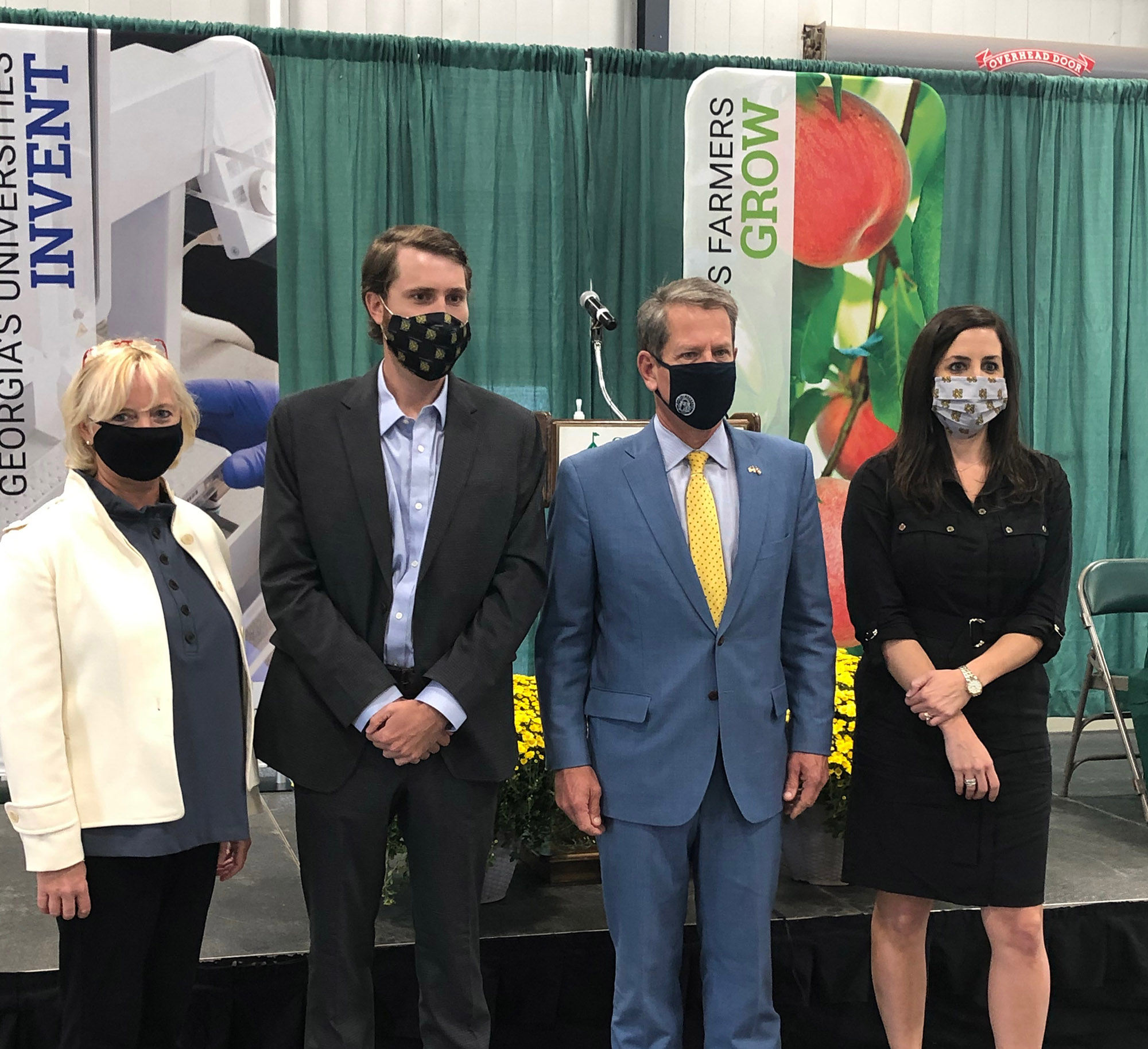KSU microbiologist among inaugural cohort of researchers selected for Greater Yield Accelerator program
Kennesaw, Ga (Oct 23, 2020) — Christopher Cornelison, assistant professor of microbiology at Kennesaw State University, was among the inaugural cohort of researchers who were recognized yesterday at the public launch of the Greater Yield Accelerator program, co-sponsored by the Georgia Research Alliance (GRA) and the Georgia Department of Agriculture's Georgia Grown.
KSU was only one of just two institutions to be selected for participation in the Greater Yield Accelerator program, recently launched by Lee Herron, GRA’s vice president of venture development. The program's primary objective is to support university start-up companies focused on agricultural and food technology.
Gov. Brian Kemp and Commissioner of Agriculture Gary W. Black were among the state officials in attendance to deliver remarks at this event that took place at the Georgia National Fairgrounds and Agricenter in Perry. Mentors assigned to the projects also participated in a panel discussion.
Dr. Beate Lloyd, chief scientific partner and president of Health Strategies & Food Solutions, LLC, will serve as Cornelison's project mentor. Lloyd has extensive experience in the food and agricutlural technology fields and will be assisting Cornelison and his team in determining the best business model for their technology. Their project focuses on determining the feasibility of growing culinary and commodity mushrooms in Georgia via low-cost and efficient production systems housed in modified shipping containers with embedded environmental control systems.
“We must be able to develop sustainable methods for producing readily preserved and nutritious foods without regional climactic limitations,” said Cornelison, who also serves as director of the BioInnovation Laboratory at KSU. “Mushrooms are an ideal crop as they only rely on three environmental factors that can be regulated to optimize growth yield—humidity, temperature and carbon dioxide concentrations.”
During the summer, Cornelison and his research team also received a $25,000 award from GRA's venture development program to study the potential commercialization of growing these mushrooms on media or substrates of regional agricultural wastes such as peanut shells, corn chaff or spent brewing grains.
This GRA program is the state’s only nonprofit catalyst for providing universities seed funds and access to mentors and consultants in forming companies around their research.

Beate Lloyd, Christopher Cornelison, Gov. Brian Kemp, and Julia Ayers, KSU's vice president for government relations were in attendance at the public launch of the Greater Yield Accelertor program, which supports university start-up companies focused on agricultural and food technology.
“Georgia has the resources to compete in this market with the appropriate application of technology and coordination of resources, including exploring potential partnerships with existing industrial and agricultural operations,” Cornelison said. “Part of our assessment will include determining production timing and yield rates with select agricultural wastes and the oyster mushroom as a model organism.”
The team, led by Cornelison, is made up of co-investigator Kyle Gabriel, a research scientist in the BioInnovation Laboratory, and Daniel Rhiner, a limited term instructor of biology at KSU, who recently earned a master's degree in integrative biology from the university.
In preparation for this phase of the project, Cornelison and Gabriel spent the last three years planning and building the experimental cultivation chamber within a shipping container. The work was supported by a Specialty Crop Block Grant from the Georgia Department of Agriculture.
The low-cost, small-footprint prototype of a semi-automated mushroom production facility, currently located at the KSU Field Station, can easily be set up anywhere, even in densely populated cities. Gabriel designed the embedded environmental control system with software, called Mycodo, which he developed and continuously updates as an open source online application.
“We are incredibly grateful for the funding, and it is an honor for me and for KSU to be included in this new Greater Yield Accelerator program,” said Cornelison. “This allows us to move the project in a direction that we are really excited to explore and to access some mentorships that will not only benefit us immediately with this project, but also have a cascading benefit for our laboratory and how we think about all of our projects.”
– Joëlle Walls











